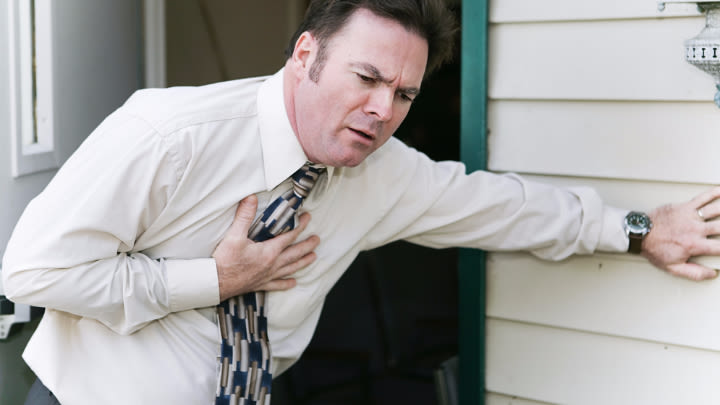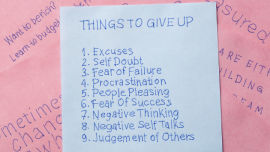Depression is one of the leading health concerns for over 50s, among osteoporosis, chronic pain, cancer, heart disease and high cholesterol. While the latter have widelyresearched and known causes and treatments, depression is far less black and white, and requires a much more individual analysis.
How depression can actually kill you
About Joanne
An advocate for women's health, strength and knowledge, I write about the issues people don't talk about, as well as the ones they do.

Depression has been linked to heart problems, cancer, diabetes and Parkinson's. Picture: Shutterstock
As the generation who, when faced with something tough, were told to ‘cop it on the chin’, suffering from depression can be difficult to speak out about, or admit to yourself. Many people aren’t even aware that what they’re feeling is depression.
Read more: Let's talk about menopause
So let’s talk about it.
Depression is more than just a low mood. It’s a disease defined by prolonged feelings of sadness without any apparent cause or trigger that affects how you think, feel and act. When left to stagnate, depression can cause major impairments to your daily life, both mentally and physically.
Symptoms of depression can include:
These symptoms can vary in severity and frequency.
Of course, it’s normal for anyone to experience a few of these symptoms in response to difficult situations, such as the death of a loved one or loss of a job. This is the body responding naturally to grief and bereavement, but when there’s no such catalyst and symptoms are constant for at least two weeks, it’s likely that you’re experiencing depression.
Definite causes of depression have not been proven, but there are a number of factors often related to its development:
You may think that because depression is a mental illness, it doesn’t affect your physical health and wellbeing. Believe it or not, depression can have a profoundly detrimental impact on the body and has been linked to a number of health issues:
Heart disease and heart attack
Depression raises a person’s stress hormones, which can build up arterial plaque and cause inflammation. People with depression are not only more likely to develop heart problems, but have worse cases and a higher mortality rate.
Stroke
The release of stress hormones increases your heart rate, which in turn, leads to higher blood pressure.
Pancreatic cancer
A recent Yale study showed that people who developed pancreatic cancer were likely to have experienced depression, more so than sufferers of other types of cancer.
Diabetes
One of the hormones released during stress is cortisol, which raises blood sugar, leading to an increased risk of diabetes. It can also be difficult for people with depression to find motivation to eat right and keep healthy.
Osteoporosis
Depression may reduce the amount of calcium in your bones and it’s thought that long-term use of antidepressants can also contribute to this.
Parkinson’s disease
It’s possible that major depression damages the brain, causing Parkinson’s, and that antidepressants contribute to its development. Parkinson’s may also just be an early symptom of the disease.
Dementia
Depression may be one of the early warning signs of dementia.
Obesity
People with depression can have trouble recognising the long-term effects of unhealthy behaviours and find it difficult to maintain a healthy diet and regular exercise.
Thyroid problems
Depression and thyroid conditions share a lot of similar symptoms, leading to common misdiagnoses. It is thought that depression may be a symptom of an underactive or overactive thyroid.
With all these increased health risks associated with depression, it’s vital that you look after your mental health.
Once diagnosed, depression can be treated in a variety of ways to help alleviate your symptoms and hopefully overcome the condition altogether. Treatments can include:
Medication
Psychological treatments
While treating depression is crucial, it’s equally important to practise healthy lifestyle behaviours to help reduce the effect of symptoms or prevent the onset of depression.
So what can you do?
Depression is not something that will just go away if you ignore it. It will likely continue to worsen over time if nothing is done to treat it, but with the help services available, it is very possible to nip depression in the bud.
If you think you might have depression, book a visit to your GP or a mental health specialist, who can work with you to create a tailored mental health care plan.
Remember, it’s OK to not be OK.

























Your rating